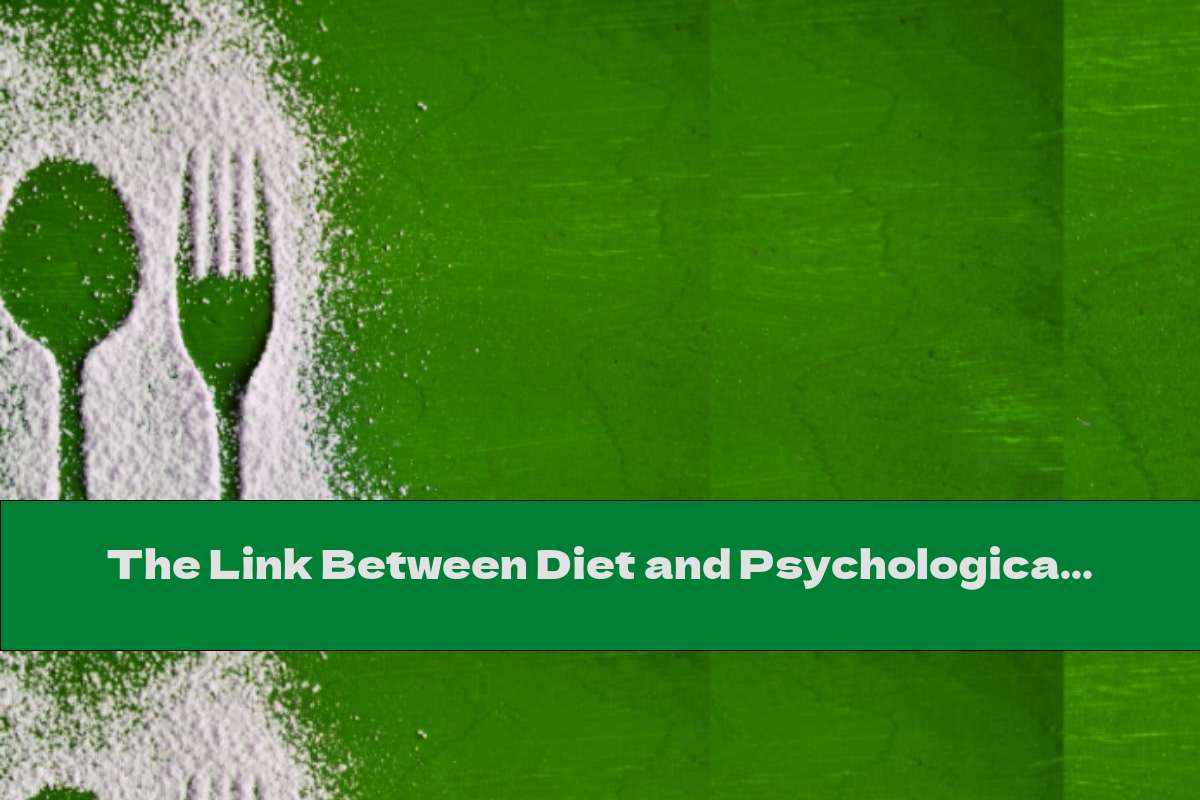The Link Between Diet And Psychological Health
 Author: Nia Rouseberg
Time for reading: ~2
minutes
Last Updated:
February 21, 2026
Author: Nia Rouseberg
Time for reading: ~2
minutes
Last Updated:
February 21, 2026

CHAPTERS (Table Of Contents)
This article explores the connection between diet and mental health, discussing the effects of unhealthy diets on psychological well-being.
It will examine how an unhealthy eating pattern can lead to deficiencies in essential nutrients and minerals that affect brain chemistry, as well as look at other factors such as the impact of a sedentary lifestyle and stress levels. It will also discuss which dietary changes could help improve psychological health.
The Impact of Unhealthy Diets
Unhealthy diets can have a significant negative impact on psychological health, leading to deficiencies in vital nutrients that are needed for optimal brain function. An excessive consumption of processed foods and sugar can lead to mood swings due to large fluctuations in blood sugar levels; this may cause irritability or depression. Furthermore, diets lacking in fruits and vegetables can lead to deficiencies in vitamins and minerals needed for the production of mood-regulating neurotransmitters such as serotonin and dopamine.
The Link Between Sedentary Lifestyle and Mental Health
A sedentary lifestyle is a major risk factor for mental health issues such as anxiety and depression. When people are inactive they tend to experience more stress, which can worsen their psychological state. Additionally, physical activity releases endorphins that can help improve moods, while sitting too much increases inflammation, which has been linked to depression. Therefore, it is important to get regular exercise in order to maintain good psychological health.
Stress as a Risk Factor for Mental Illness
Stress is an unavoidable part of life, but too much stress can lead to mental health issues. Stress hormones such as cortisol and adrenaline can affect brain chemistry, leading to changes in mood, energy levels, and focus. Long-term stress has also been linked to a higher risk of developing depression or anxiety disorders. It is important to find ways to manage stress in order to preserve mental wellbeing.
Nutritional Strategies for Mental Health
Incorporating more nutrient-dense foods into the diet can help improve psychological health. Eating more fruits and vegetables supplies the body with vitamins and minerals that are essential for optimal brain functioning; this may help reduce inflammation associated with poor mental health. Additionally, getting enough essential fatty acids from sources such as fish can help boost mood and protect against depression. Eating more whole grains is also beneficial for mental health, as they are high in B vitamins which are important for neurotransmitter production.
Conclusion
A balanced diet is key to maintaining good psychological health. Eating nutrient-dense foods that provide the body with essential nutrients and minerals can help reduce inflammation while providing the building blocks needed for brain function. Additionally, stress management techniques should be used to reduce stress levels and physical activity should be incorporated into daily life in order to promote mood stability. By following these strategies, it is possible to enjoy better mental wellbeing through dietary intervention.
Related Articles
- The Power of Honeysuckle: Health Benefits and Recipes
- The Ultimate Guide to Hickory Smoked Bacon in Nutrition and Healthy Eating
- Nutritional Benefits of Fruit Skewers in Honey Syrup: A Delicious and Healthy Recipe
- Nutritional Benefits of Fruit Skewers in Honey Syrup: A Healthy and Delicious Snack
- Nutrition for Respiratory Health: Supporting Your Lungs with the Right Foods
Top Nutrition Articles Today
- . The Latest Food Pyramid: A Guide to Balanced Nutrition
- . Nutrition Guide: Importance of Food Pyramid, Meal Planning,...
- . The Role of Hydrochloric Acid in Digestion: A Comprehensive...
- . Libre2 Sensor Reset: Extending the Life of Your Glucose Sens...
- . The Power of Chalk in Nutrition: Benefits, Recipes, and Tips
- . All You Need to Know About E471 in Food: Functions, Foods, H...
- . The Essential Macronutrients of Beans: Protein, Carbs, Fiber...
- . The Nutritional Benefits of Quail: A Protein-Rich Superfood
- . List of Foods that Contain Carrageenan: A Guide to Avoiding...
- . Hydrochloric Acid in Digestion: Importance, Symptoms, and Na...